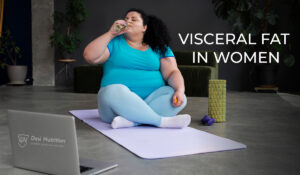Gluten is a protein found in foods like wheat, barley, rye, and triticale which acts as a binding agent in many foods and gives them its elasticity. For most people gluten is safe but people with celiac disease have to eliminate gluten from their lives because it may damage their small intestines. Also, if you want to follow a gluten-free high-protein diet, you need to consume gluten-free foods.
In this article we will be talking about gluten-free high-protein diets, including the foods you should consume, the health benefits of a gluten-free diet, and at the end, you will get a sample of a gluten-free high-protein diet. So, let’s get started!
Gluten-free foods:
Here is a list of foods that are naturally gluten-free. If you are looking to achieve specific health goals, you can choose a gluten-free diet and include foods like:
- Fruits
- Vegetables
- Meat
- Poultry
- Fish
- Beans
- Eggs
- Nuts
- Seeds
- Rice
- Corn
- Potatoes
- Quinoa
- Dairy products (milk, cheese, yogurt)
You will come across ‘gluten-free’ products as well. However, you have to be mindful while choosing foods to eat on a gluten-free diet. Make sure you read the labels carefully to identify hidden sources of gluten.
Health benefits of gluten-free high-protein diet:
A gluten-free diet comes with multiple health benefits, especially for people with celiac disease and gluten sensitivity. Here are the benefits you will get while following a gluten-free diet:
Reduced digestive problems:
Gluten can trigger inflammation and damage the small intestines in people with celiac disease. Upon following a gluten-free diet you know for sure you are not consuming gluten in any form which will reduce your digestive problems. Removing gluten can give relief to your gut and prevent symptoms like bloating, diarrhea, and fatigue.
Improved nutrient absorption:
Consuming gluten can affect your gut lining which will cause issues while absorbing nutrients. Following a gluten-free diet can help improve the nutrient absorption of the body. A gluten-free diet will contain all the essential nutrients that your body needs from various food sources.
Increased satiety:
A gluten-free high-protein diet promotes the feeling of satiety because protein is more satiating than carbs or fat. This helps in weight management because you will consume less calories when you feel full.
Moreover, protein-rich foods have more thermogenic effects than other foods. This means the body will use more energy for burning protein than any other macronutrient. Hence, you will burn more calories, even when you are at rest.
Muscle building and repair:
The high protein content in a gluten-free diet will ensure muscle building and repair because protein is the bundling block of the body supporting the tissues of muscle, skin, and hair.
Also, when you are losing weight it is essential for you to consume protein so it can help build muscle mass.
Reduced inflammation:
A gluten-free diet could help to reduce the inflammation. Chronic inflammation could result in various health problems. A gluten-free diet can help to reduce the inflammation in some people which can reduce the risk of developing inflammatory diseases.
Improved gut health:
Gluten can disrupt the gut microbiome which is the balance of bacteria in your gut and damage the gut lining which could lead to damage to your small intestine.
A gluten-free diet with foods that are naturally gluten-free can help to improve your gut health which would eventually lead to an improved digestive system and immune system.
Blood sugar management:
A gluten-free diet can also support blood sugar management which will potentially benefit people with type 2 diabetes. Though more research is needed this one can follow a gluten-free diet to maintain their blood sugar levels as well.
Gluten-free high protein sample diet:
Day 1:
- Start your day with 2 glasses of ajwain water and have 2 walnuts and 5 almonds in the morning.
- For your breakfast, prepare moong dal chilla and enjoy it with tomato chutney.
- 100 g of Greek yogurt will make your mid-morning snack along with one fruit.
- For lunch, prepare grilled chicken breast with mixed vegetables.
- Drik Green tea after lunch.
- In the evening, pan saute paneer with cucumber.
- Have quinoa with tofu and spinach for your dinner.
- Drink ginger turmeric tea after dinner.
Day 2:
- Drink 2 glasses of ajwain water with 2 walnuts and 5 almonds along with it.
- Enjoy chia seed pudding with mango in your breakfast.
- Have hard-boiled eggs as your mid-morning snack.
- Prepare chicken tikka and enjoy your lunch with quinoa.
- Have green tea after lunch.
- Have roasted chickpeas as your evening snack.
- Make dal tadka with cauliflower rice for your dinner.
- Drink ginger turmeric tea after dinner.
Day 3:
- Start your day with 2 glasses of ajwain water with 2 walnuts and 5 almonds.
- Make 1 cup poha and have it with 1 cup milk and 2 boiled eggs.
- Eat raw paneer with pineapple as your mid-morning snack.
- Mutton curry with brown rice will be your lunch for day 3.
- Drink green tea after lunch.
- Have carrot sticks with hummus as your evening snack.
- Cook moong dal khichdi with mixed vegetables,
- Drink ginger turmeric tea after dinner.
Day 4:
- 2 glasses of jeera water with 2 walnuts and 5 almonds will help you start your morning.
- For breakfast, prepare besan chilla and have it with chutney.
- Prepare cucumber, tomato, carrot, and beetroot salad.
- Grilled paneer with vegetable cauliflower upma would be your lunch for day 4.
- Drinking green tea after lunch.
- In the evening, drink Indian tea without sugar and have roasted nuts with it.
- For dinner, prepare tandoori chicken breast and have broccoli with it.
- Drink ginger turmeric tea after dinner.
Day 5:
- Drink 2 glasses of jeera water with 2 walnuts and 5 almonds first thing in the morning.
- Prepare a masala omelet with spinach.
- Eat almonds and walnuts as your mid-morning snack.
- Cook rajma and have them with brown rice for your lunch.
- Drink green tea after lunch.
- Have apple slices with peanut butter as your evening snack.
- Prepare grilled fish with steamed vegetables for your dinner.
- Drink ginger turmeric tea after dinner.
Day 6:
- Start your day with 2 glasses of jeera water and have 2 walnuts and 5 almonds.
- Have milk with 2 boiled eggs as your breakfast.
- Drink butter milk as your mid-morning snack.
- For lunch, have chana masala with quinoa.
- Drink green tea after lunch.
- Have an apple or 3 slices of papaya with coconut water.
- Prepare herbed chicken breast or fish and enjoy your dinner with a salad.
- Have green tea after dinner.
Headed to day 7 already? Well, enjoy your favorite food in one meal and you can eat whatever you feel like in your meal.
Some important considerations:
- Make sure you drink plenty of water throughout the day.
- Eat slowly and savor the taste of your meal in every bite.
- Read cookbooks, and blogs on gluten-free lifestyles, and health goals to achieve on a gluten-free diet to educate yourself.
- Consult a dietician who can guide you through a gluten-free lifestyle and plan a diet that fits your health goals.
- Eat a balanced diet because grains that contain gluten are sources of fiber and other essential vitamins and minerals. Make sure you include fiber-rich food and other foods rich in vitamins and minerals.
Frequently Asked Questions:
What are some challenges of a gluten-free, high-protein diet?
Ans. You have to stick to gluten-free foods and focus on whole foods which are naturally gluten-free like legumes, lentils, vegetables, fruits, etc.
You might have to face nutrient deficiency; therefore ensure to include various foods in your meal to make it a balanced diet.
A lack of knowledge could lead to committing mistakes. Make sure you are keeping up with your gluten-free learning by constantly updating yourself.
Consulting a dietitian should be your priority if you want to start a gluten-free diet so they can help you plan a meal that aligns with your health goals.
Are there any risks associated with a gluten-free, high-protein diet?
Ans. There are no potential risks associated with gluten-free high-protein diets but for personalized recommendations, you should consider a nutritionist.



